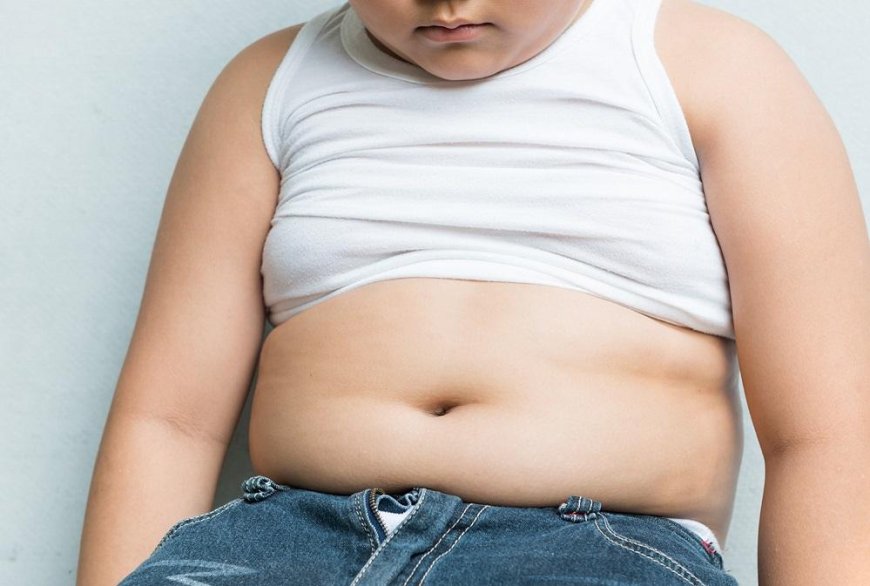Overweight & Obesity Problems for Children & Adolescents?
that baby is overweight? As children grow and develop, there are normal weight changes. Overweight & Obesity Problems for Children.

Children who are overweight or obese are at the risk of serious health problems as they get older, including severe obesity can cause liver problems and arthritis. A child who is overweight or obese can be taught or bullied about his or her weight, feels bad about his or her body, or feels isolated or alone. These feelings can interfere with a child's ability to learn, make friends, and interact with others. How can you tell that baby is overweight? As children grow and develop, there are normal weight changes. Overweight & Obesity Problems for Children.
It can be hard for you to tell if your baby is overweight. If you are worried about your child's weight, talk to your GP. Your doctor can help you determine if your baby is overweight by calculating their body mass index (BMI). BMI is a rough measure of body fat. It is based on the height and weight of your child. Many websites offer calculators to help adults determine their BMI. Children's BMI numbers are broken down into categories called, "percentiles. Percentages allow your doctor to compare your child to other children of the same age, height and sex.
If your child's BMI is higher than 85% of other children of the same age, height, and sex, it is considered overweight. If your child's BMI is higher than 95% of other children of the same age, height, and sex, he or she is considered obese. What Other Tests May They Need? If your doctor wants to confirm that your child's extra weight is related to having a lot of body fat, he or she may take skin thickness measurements.
This is done by using a special tool called a caliper to measure the thickness of fat at certain areas of the body (for example, the back of the upper arm or near the belly button). If your baby has other symptoms in addition to weight gain, your doctor may perform tests to see if another health problem may affect your child's weight. If baby overweight or obese due to genetics? Children with overweight or obese family members are at greater risk of becoming overweight or obese. Genetics often works in combination with environmental and behavioral factors.
This means that the child™s eating and physical activity procedures are as important as family history in determining his or her weight. Could Child™s Weight Gain Be Caused By a Disease or Hormone Imbalance, Or with Medication or Being Gaining? In most cases, people with a disease or hormone imbalance will have other symptoms in addition to weight gain. Be sure to tell your GP if you notice any changes in your baby, such as fatigue, constipation or dry skin. This information will help your doctor evaluate your child.
Must Read: What are the 10 most downloaded Applications in 2020?
Some medicines can contribute to weight gain. Your doctor will want to find out about any medicine your child is taking, including vitamins and herbal supplements. If your child has gained weight after taking medicine, let your doctor know. Will baby come out of being overweight as he gets older? Child is unlikely to grow up to be overweight unless it helps him or her learn to make healthier choices. Studies have shown that overweight, or obese children are more likely to be overweight or obese as adults.
Should you consider a weight loss diet for your child? Do not put your child on a diet without considering to your kids doctor first. Children need some calories and certain nutrients to grow, learn and develop. What can you do to help my child who is overweight or obese? Teach your child that proper nutrition and regular physical activities is the keys to maintain a healthy weight. These good habits protect against the health, social and emotional problems that can lead to being overweight or obese. As a parent or primary career, you have a huge impact on your child.
He or she will follow your example so, it is important for you to be a good role model. The whole family should be eating healthily and in physical activity, not just the overweight or obese child. Try not to think of the changes you are making as a temporary œdiet or œprogram. You are developing lifelong habits to improve the health of your entire family. Some tips: Try some healthy food in you life (like fruits like apples and bananas, mango, watermelon, and raw vegetables like carrots and celery) readily available. Do not bring unhealthy foods into your home. Include lots of low fat proteins, vegetables and whole grains in the meals, you make.
Avoid fast food. If you eat in a fast food restaurant or sit down, choose the healthiest options available. Time limit for your child using a TV, computer, cell phone, or game station no more than 1 to 2 times a day. Encourage your child to find physical activities that he or she enjoys and be active. Aim for at least 1 hour of active play each day. Make physical activity a part of your entire family lifestyle. Take a walk, go on a bike ride, or do it together. Plan out active family trips.
